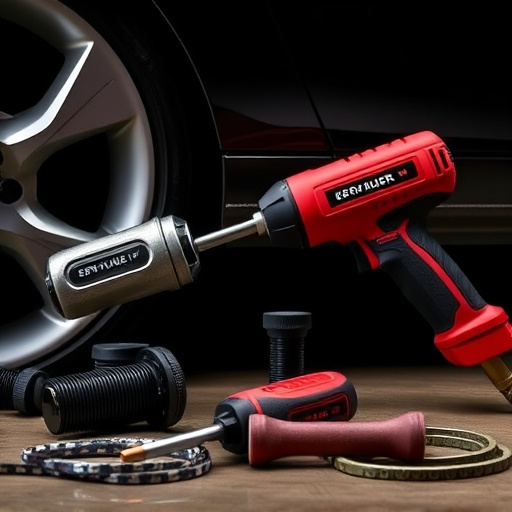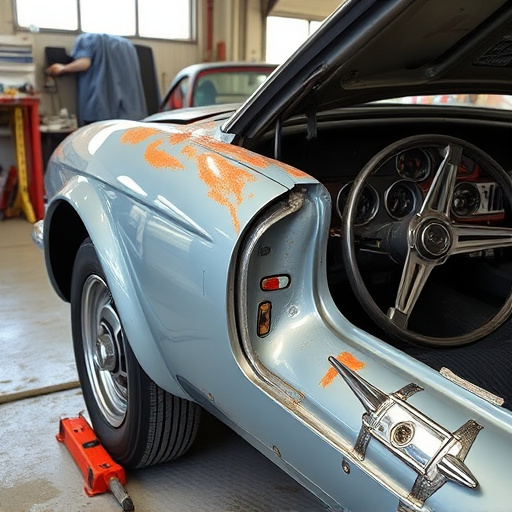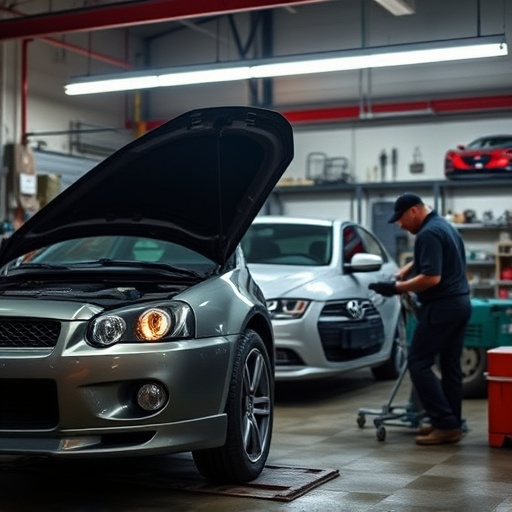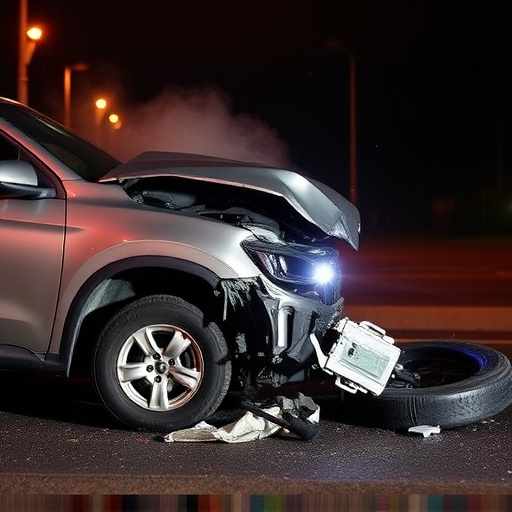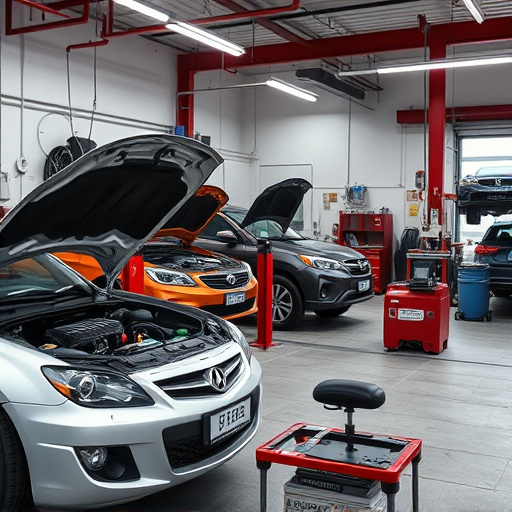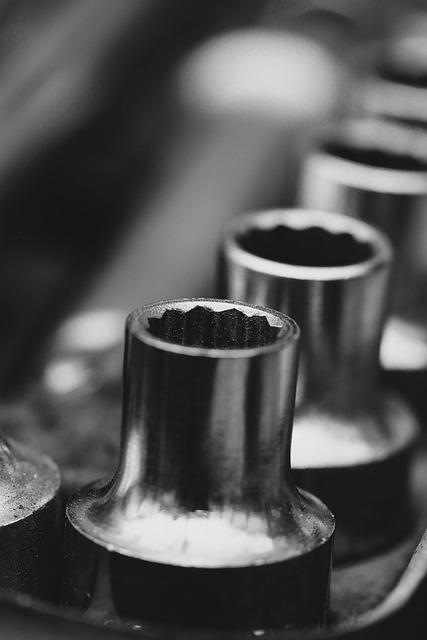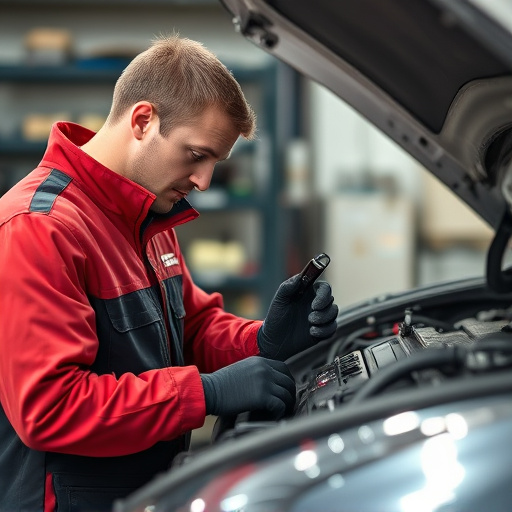Body panel insulation is crucial for vehicle protection against moisture, salt, and pollution, preventing rust formation and structural damage. It prolongs car exterior lifespan, reduces repair costs, and enhances aesthetic appeal by mitigating environmental factors like temperature fluctuations, UV radiation, and collision-related exposure, benefiting both modern and classic cars.
Body panel insulation is a crucial defense against the silent enemy of automotive corrosion. By understanding the common causes and effects of body panel corrosion, we can appreciate why insulation plays a vital role in protecting metal surfaces. This article explores various types of body panel insulation and their benefits, offering insights into how car owners and mechanics can prevent corrosion issues for longer-lasting vehicles.
- Understanding Body Panel Corrosion: Common Causes & Effects
- The Role of Insulation in Protecting Metal Surfaces
- Types of Body Panel Insulation and Their Benefits
Understanding Body Panel Corrosion: Common Causes & Effects

Corrosion is a common issue that plagues many vehicle owners, especially when it comes to the body panels of cars. Understanding the causes and effects of this problem is key to preventing long-term damage, which is where body panel insulation plays a crucial role.
The primary culprits behind body panel corrosion are exposure to moisture and environmental factors such as salt and pollution. These elements can penetrate paint jobs and seals, leading to rust formation under the surface. Over time, this can result in weak spots, holes, and even complete structural failure of the body panels. Automotive repair specialists often refer to these issues as ‘rust spots’ or ‘corrosion damage’, which can significantly impact the aesthetic appeal and overall value of a vehicle. In severe cases, auto collision centers may need to resort to expensive replacement parts and extensive car body repair processes to restore the vehicle’s structural integrity.
The Role of Insulation in Protecting Metal Surfaces

Insulation plays a pivotal role in safeguarding metal surfaces within vehicles, particularly in the context of auto body services and classic car restoration. By creating a barrier between the metal and the external environment, insulation acts as a protective layer that helps prevent corrosion issues. This is especially crucial for cars involved in car collision repair, where exposed metal may be more susceptible to damage and subsequent corrosion.
Effective body panel insulation can significantly extend the lifespan of vehicles by mitigating the impact of various environmental factors such as moisture, temperature fluctuations, and UV radiation. It does so by reducing the transfer of heat and humidity, which are key contributors to metal degradation. This is not just relevant for modern cars but also for vintage or classic car restoration projects, where preserving the integrity of original panels is paramount.
Types of Body Panel Insulation and Their Benefits

Body panel insulation is a crucial component in the automotive industry, particularly when it comes to body panel insulation and extending the lifespan of vehicles. This protective layer is designed to safeguard metal components from various environmental elements, including moisture, road salt, and extreme temperatures, all of which can contribute to corrosion. There are primarily two types of body panel insulation: thermal insulation and soundproofing materials.
Thermal insulation, often made from fiberglass or foam, acts as a barrier against heat transfer, maintaining the vehicle’s ideal interior temperature and reducing the impact of external climate conditions on the metal panels. This is especially beneficial in collision repair and frame straightening processes, where restoring structural integrity is essential. On the other hand, soundproofing materials, typically consisting of absorbent fabrics or foam, minimize noise transmission, enhancing passenger comfort. By preventing heat and sound from penetrating the cabin, these insulations contribute to a more comfortable driving environment while also protecting the vehicle’s body panels from potential damage caused by thermal expansion and contraction.
Body panel insulation is a crucial step in protecting vehicles from corrosion, which can cause significant damage and reduce vehicle lifespan. By understanding the common causes and effects of body panel corrosion, we can appreciate the essential role that insulation plays in safeguarding metal surfaces. The various types of body panel insulation offer tailored benefits, ensuring that vehicles remain robust and reliable for years to come. Implement these strategies to navigate the challenges of corrosion and maintain the integrity of your vehicle’s exterior.
